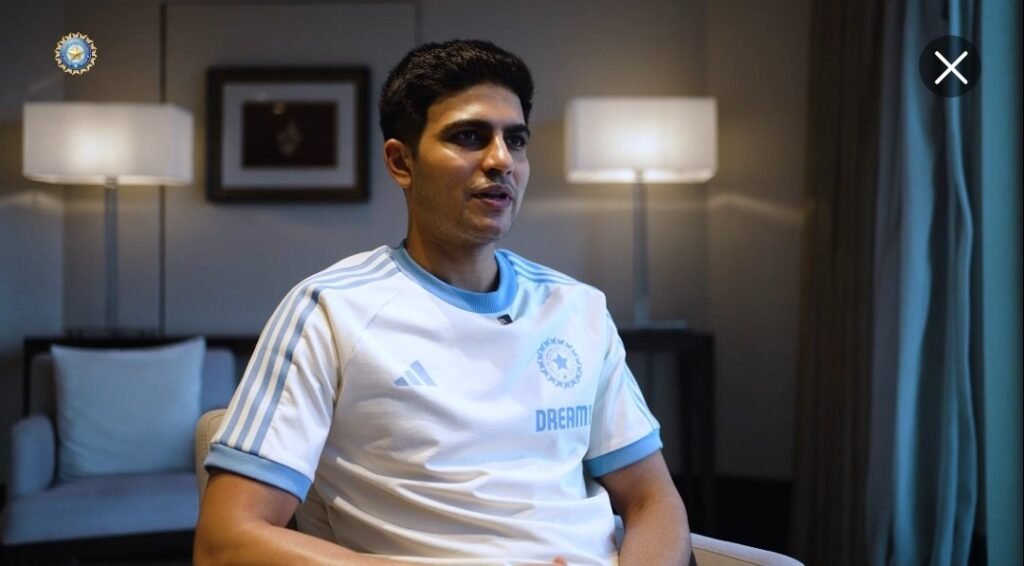
Shubman Gill’s appointment as the Test captain of India marks a significant turning point not only in his personal career but also in the trajectory of Indian cricket. At just 25 years of age, Gill finds himself in a role previously held by legendary figures such as Virat Kohli and Rohit Sharma. The decision has stirred both excitement and scrutiny, signaling the dawn of a new era in India’s red-ball journey. As Indian cricket transitions toward youth and long-term vision, Gill stands at the center of this transformative phase.
In his first words as Test captain, Gill expressed both humility and a strong sense of purpose. He described the appointment as “overwhelming” and emphasized the honor and responsibility that come with leading the Indian team in the longest format of the game. According to him, captaincy is not merely about tactical decisions or standout performances on the field. It’s about setting an example in all aspects — through discipline, integrity, hard work, and leadership off the field. These values, he believes, are as crucial as runs scored or matches won.
Gill has never been short on talent. Since bursting onto the international scene, he has shown immense promise with the bat. His composure at the crease, ability to adapt to various conditions, and hunger for big runs have made him a vital part of India’s batting unit. However, the Test format presents different challenges — both mental and strategic — and captaincy adds another layer of complexity. Gill appears ready for it, not just because of his cricketing skill, but due to the maturity he has displayed over the years.
Leadership isn’t new to him. He has led in the Indian Premier League, most notably with the Gujarat Titans, and has served as captain in T20 Internationals. These stints have allowed him to grow into a thoughtful and composed leader, someone who listens to teammates, backs his instincts, and learns from every situation. What stands out most in his leadership style is his commitment to providing space for other players to grow. Gill spoke about the importance of understanding his team, giving players the freedom to express themselves, and creating an environment of mutual respect and support.
The timing of this decision is also noteworthy. With stalwarts like Virat Kohli and Rohit Sharma stepping away from Test duties, the Indian team finds itself in a transitional phase. Appointing Gill now allows him to build his team and vision from the ground up. It also signals the selectors’ confidence in him not only as a cricketer but as a long-term leader. This responsibility will not be without pressure. India’s cricket-crazy public and demanding media will have their eyes on every decision he makes, every session he leads, and every statement he gives.
India’s upcoming Test series against England will be Gill’s first major test in the role. Leading a relatively young side in foreign conditions will challenge his strategic thinking, temperament, and ability to rally the team. The five-match series will likely offer a glimpse into the kind of captain he will be — whether he will be aggressive like Kohli, calm and calculated like Dhoni, or carve out a unique identity of his own.
Gill also mentioned that he has learned from all his predecessors. He values Rohit Sharma’s calm demeanor and tactical acumen, and he respects the intensity and drive of Virat Kohli. But he’s clear about not copying anyone. His goal is to lead authentically, in his own way, and to bring something new to the table. This mindset is crucial for someone stepping into a role that often comes with the burden of comparison.
What sets Gill apart is his understanding that captaincy is more about the team than about individual greatness. He stressed the importance of building a cohesive unit, supporting players during tough times, and encouraging a culture of accountability and trust. These are the hallmarks of a modern leader — someone who doesn’t just lead from the front, but lifts others with him.
As India prepares to enter a new World Test Championship cycle, the expectations on Gill’s shoulders are immense. But so is the opportunity. A successful tenure could cement his place among India’s greats, not just as a batter, but as a leader who shaped the future of Test cricket in the country.
In stepping into this role, Shubman Gill isn’t just inheriting a title — he’s taking on a legacy. And by the way he speaks and carries himself, it is clear that he understands the magnitude of the responsibility. The journey ahead will be long, filled with challenges and triumphs alike. But if his words and attitude are anything to go by, India’s Test team is in thoughtful and capable hands.
For more news updates, follow 12B Sports India Facebook .

